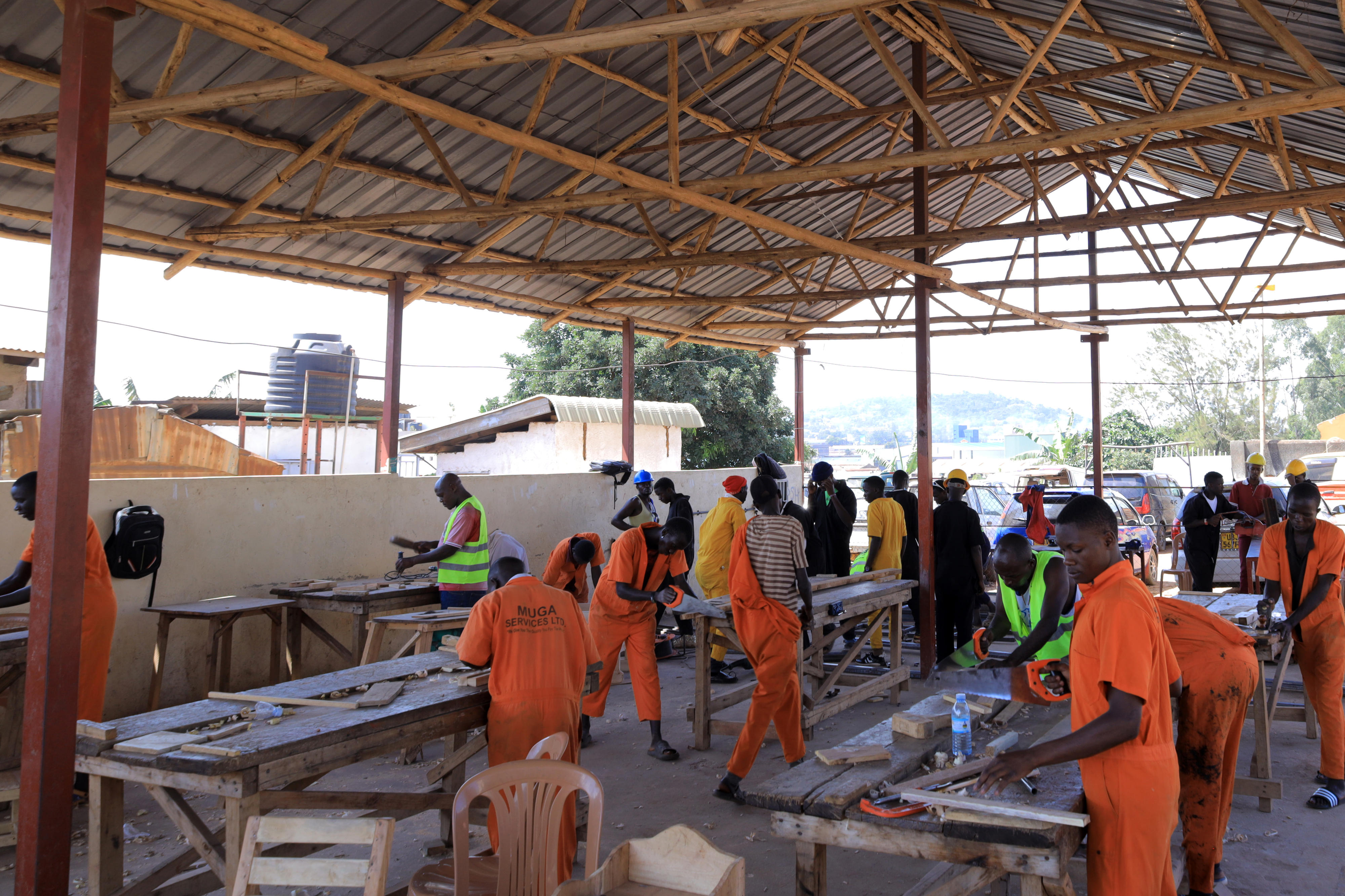Prime
38 years on, Museveni’s great speeches are haunting him

Author: Nicholas Sengoba. PHOTO/NMG
What you need to know:
Fast forward to today, Museveni’s promised four years have increased almost ten-fold. He will make 40 years come 2026.
Someone who knows me quite well, called and in the midst of a chuckle, sarcastically asked me if I was already in the tent eagerly awaiting President Yoweri Museveni’s ‘Liberation Day’ speech.
These days I meet many who no longer bother to listen in for they claim there will be ‘nothing new’.
Of course, that is or was with the exception of the two-year Covid-19 pandemic lockdowns of 2020/21. That time Museveni’s speech determined if you stayed home or went to work.
How times change. 38 years ago, you could literally take a Museveni speech to the bank. In 1985 as the NRA guerrillas closed in on Kampala there was an air of anxiety. Those days you had no internet and the state-owned Radio Uganda, Uganda Television and the Uganda Times newspaper were the main sources of information about the war. As expected, they did a lot of propaganda to discredit the ‘bandits’ while praising the UNLA forces.
You also had Munno, Munnansi and a myriad of other private newspapers which gave an alternative view in a very authoritarian environment.
In the end many found solace in BBC radio, especially the Focus on Africa slot. I remember Robin White and the late Chris Bickerton in the studios in London while the redoubtable Henry Gomya reported from Kampala. We did not have FM radio neither were gadgets as common as they are today.
So it was normal to find people crowded around a radio set operated by batteries sourced by crowd funding, to hear the reports of the war. Many times, those batteries would be put out in the sun to charge; to extend the course of their run down lives. Scarcity was a real problem. Michael Tindikahwa’s Sound Solo radio set served us well at Budo.
Some of the most sought-after programmes were the ones where Museveni was interviewed. My, oh my, many of us had never listened to someone who was so informed, fresh and articulate in his thinking.
You have to appreciate that, at that time in Kampala, the regime was headed by the late Gen Tito Okello Lutwa who did not have a good command of the English language. He was wont to say ‘fellow Chitijen’ when he addressed citizens. Yet from a Museveni speech you learnt a new word or sweet phrase almost every time he spoke. Many of us then at Budo heard the term ‘obscurantism’ from him for the first time and struggled to use (and miss-use) it at the slightest prompting. He promised to dump on the garbage heap of history, those mismanaging the affairs of our country because they were suffering from a colonial hungover.
He spoke about the ideological bankruptcy of the fascist, corrupt regime in Kampala that was bleeding government coffers by paying for ‘air supply’. He lambasted it for failing to follow the correct line and was instead engaging in nepotism, tribalism (undugu in Kiswahili), while subjugating our people and killing them. The killers he complained were never prosecuted but promoted.
He reeled off statistics to prove that the economy had been destroyed to the extent that in the 20th Century it could not even produce safety pins. The leaders whom he contemptuously called ‘those fellows’, had now resorted to saddling the country with huge debt to remain afloat. That they were mere agents of neo-colonialism who needed to be replaced immediately. He ridiculed the past leaders later dismissed as swine for engaging in ostentatious consumption that saw old men using public funds to buy beds from abroad. He promised to use local furniture from Katwe to save funds.
Museveni and his NRM/A were coming to do just that. He was coming to build an independent, integrated and self-sustaining economy. Restore right to life and protect the dignity of the citizen. He criticised the roads which had gullies that exposed pregnant women to miscarriages as cars fell in and out of them.
There would be zero tolerance to corruption and waste of public resources. Unlike the previous governments that left the corrupt to go scot free, the revolutionaries would punish them. This was not a mere change of guards, but a fundamental change.
When Museveni came to power in January 1986 he continued with the tradition of great speeches. He always addressed well attended press conferences at Entebbe Airport whenever he returned from trips abroad.
Museveni was such a hit. I recall many people trying to emulate him in speech, appearance and behaviour. People wore their wrist watches on the right hand, a t-shirt under their shirts and grew moustaches. They also tired to mimic speaking with a stammer as Museveni was wont to do.
People followed every word he said for that was the contract he was signing for the four years he was to be in power before he handed over to civilian rule. It was on one of those occasions that he mentioned what had intrigued many followers of African history and politics for a long time. The puzzle was, what made a continent so full of promise, so rich in resources and energetic people, remain so desperate and desolate that it was termed a basket case?
Museveni said the problem of Africa was leaders who stayed too long in power. Fast forward to today, Museveni’s promised four years have increased almost ten-fold. He will make forty years come 2026. Almost all the things he told us the past leaders got wrong, he is getting wrong as well.
You still have people disappearing and being killed by security operatives, though it is claimed it is not State inspired. Public funds are still stolen with impunity and he has asked that the culprits are not pushed by threats of prosecution into hide their money abroad. Undugu is very rife. The roads are still a risk to pregnant women. Museveni himself still flies in a private jet just like the American president a thing that took him aback and said presidents of poor debt ridden countries should not do. You still have hospitals without drugs and adequate personnel. And yes, in this great green land people still suffer from jiggers and die of hunger despite the tremendous economic growth rate figures. The country’s debt has increased exponentially that Uganda now spends almost a third of its GDP repaying interest on loans. What has not changed is that Museveni in his speeches still blames past leaders and the colonialists for Uganda’s problems and is still making promises to solve them
Mr Sengoba is a commentator on political and social issues
Twitter: @nsengoba




